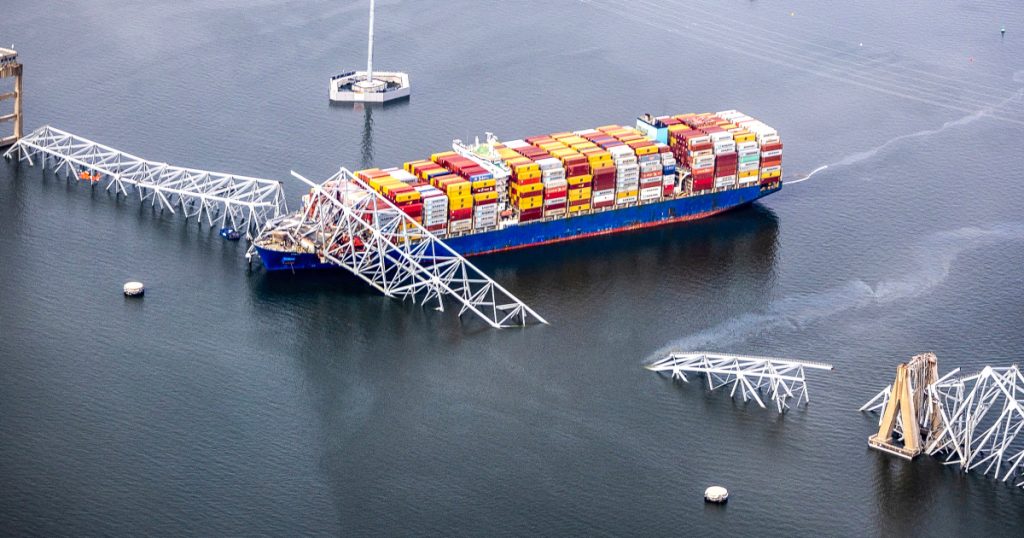The Dali cargo ship experienced a power failure that led to it crashing into the Francis Scott Key Bridge in Baltimore, prompting investigations regarding fuel contamination as a potential cause. The ship refueled in Zhangzhou, Zhoushan, and Busan before the incident, with experts pointing out that contaminated fuel can lead to such power failures, although incidents are rarely reported due to occurring in open seas. The data regarding the Dali’s fueling activity was obtained from the UN’s LRIT system and Automatic Identification System data reported by the ship and provided by MarineTraffic. While the fuel stops in Asia were tracked, details on the type, origin, and quality of fuel were not included in the data.
Legal and maritime experts noted the lack of accountability for purveyors of faulty fuel, with most incidents not causing significant damage or harm. Fuel contamination poses risks to crew members, can lead to pollution, and damage shipping companies’ reputations. Despite the potential role of fuel contamination in the Dali incident, other factors may have contributed to the power failure, and investigations are ongoing. The National Transportation Safety Board is beginning its investigation into the crash, including testing fuel samples for contaminants. The incident has brought attention to the little-known problem of fuel contamination in the shipping industry, which lacks self-regulating mechanisms to identify contaminated fuel before it is consumed.
Issues with fuel quality and contamination are not confined to specific geographic regions or suppliers, according to experts. The supply chain for ship fuel is opaque, with few countries having strong laws on fuel management. Contaminants in fuel are often unintentional but can lead to major system failures. Unscrupulous fuel providers may dilute their product with cheaper substances to increase profits, posing risks to ships and their crews. Incidents of fuel contamination have led to industry warnings, investigations, and legal battles, with some cases involving power loss and engine problems on numerous ships.
Several incidents of fuel contamination in recent years have resulted in ships experiencing power loss and propulsion issues, with some vessels affected while at sea. The opaque supply chain and lack of stringent regulations contribute to fuel contamination incidents, which can have significant consequences for the shipping industry. While most incidents go unreported, those that receive media attention represent only a fraction of the total cases that occur. The incidents highlight the importance of addressing fuel quality and contamination issues to prevent risks to ships, crew members, and the environment.


